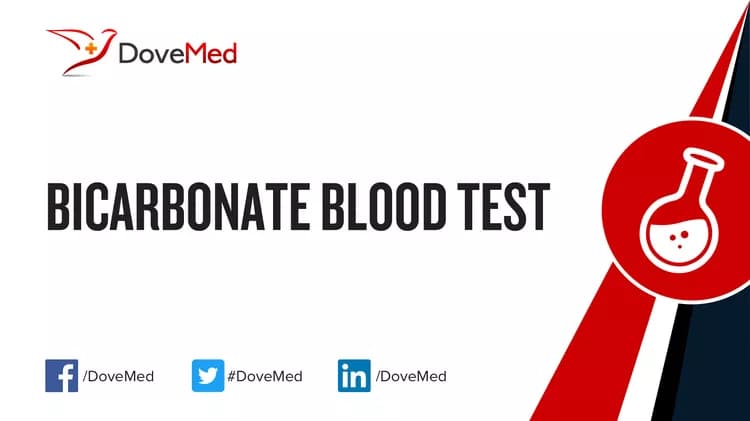What are the other Names for this Test? (Equivalent Terms)
- Bicarb Blood Test
- Carbon Dioxide Blood Test
- Total Bicarbonate Blood Test
What is Bicarbonate Blood Test? (Background Information)
- Bicarbonate (HCO3-) is a negatively charged ion important to the body’s acid-base and charge balance. Bicarbonate is an electrolyte, like sodium (Na+), potassium (K+), and chlorine (Cl-). Electrolytes are important in conducting neural impulses, maintaining osmotic balance, and for various other functions
- The bicarbonate electrolyte and its counter-acid carbonic acid, form a buffer system in blood. A buffer system resists drastic changes in pH. This is useful, because blood pH must stay within a narrow range of 7.2-7.4, in order to maintain one’s health
- When the level of hydrogen atoms (H+) increases in blood, acidity rises and pH falls. This can occur during exercise and prolonged fasting, as acids are released into blood
- To restore homeostasis, bicarbonate soaks up the H+ ions and forms carbonic acid (H2CO3). Carbonic acid then dissociates into water (H2O) and carbon dioxide (CO2). CO2 is exhaled, and pH is restored back to normal levels. Alternatively, the carbonic acid-bicarbonate buffer system can also protect against increases in pH levels, even though this happens more rarely
- An imbalance in bicarbonate levels may indicate that the body is struggling to maintain proper pH levels. This can cause numerous health conditions
- A Bicarbonate Blood Test is a test to measure bicarbonate levels in blood. It is used to assess electrolyte balance and monitor buffering capacity
What are the Clinical Indications for performing the Bicarbonate Blood Test?
Following are the clinical indications for performing a Bicarbonate Blood Test:
- As part of an electrolyte panel
- As part of a routine blood screen
- Difficulty breathing
- Wheezing
- Diarrhea
- Vomiting
- Fever
- Panic attacks
- Anemia
How is the Specimen Collected for Bicarbonate Blood Test?
Following is the specimen collection process for Bicarbonate Blood Test:
Sample required: Blood
Process: Insertion of a needle into an arm vein.
Preparation required: No special preparation is needed prior to the test.
What is the Significance of the Bicarbonate Blood Test Result?
The significance of the Bicarbonate Blood Test is explained:
Decreased bicarbonate levels may indicate:
- Addison’s disease
- Diabetic ketoacidosis
- Kidney disease
- Metabolic acidosis
- Toxicity, due to:
- Ethylene glycol
- Methanol
- Aspirin
Increased bicarbonate levels may indicate:
- Chronic obstructive pulmonary disease (COPD), such as emphysema
- Asthma
- Cushing’s syndrome
- Conn syndrome
- Metabolic alkalosis
- Bulimia nervosa
The laboratory test results are NOT to be interpreted as results of a "stand-alone" test. The test results have to be interpreted after correlating with suitable clinical findings and additional supplemental tests/information. Your healthcare providers will explain the meaning of your tests results, based on the overall clinical scenario.
Additional and Relevant Useful Information:
- The carbonic acid-bicarbonate buffer system is one of several buffering systems used by the body. Others include the phosphate, protein, and hemoglobin buffer systems
Certain medications that you may be currently taking may influence the outcome of the test. Hence, it is important to inform your healthcare provider, the complete list of medications (including any herbal supplements) you are currently taking. This will help the healthcare provider interpret your test results more accurately and avoid unnecessary chances of a misdiagnosis.
Related Articles
Test Your Knowledge
Asked by users
Related Centers
Related Specialties
Related Physicians
Related Procedures
Related Resources
Join DoveHubs
and connect with fellow professionals


0 Comments
Please log in to post a comment.